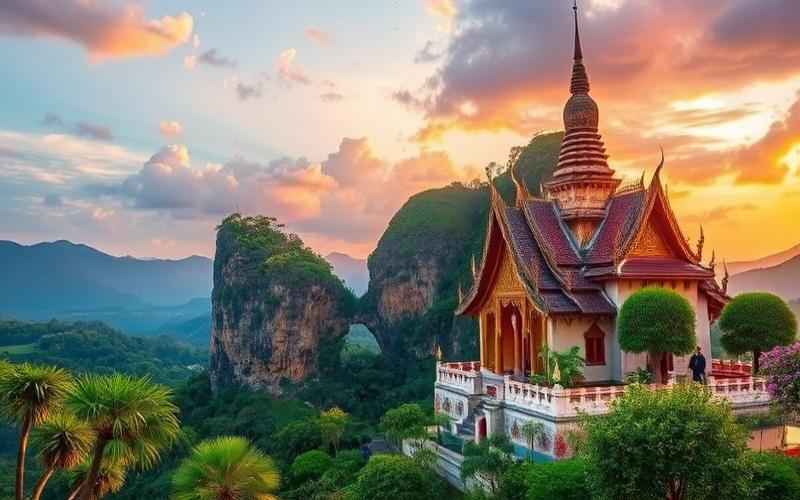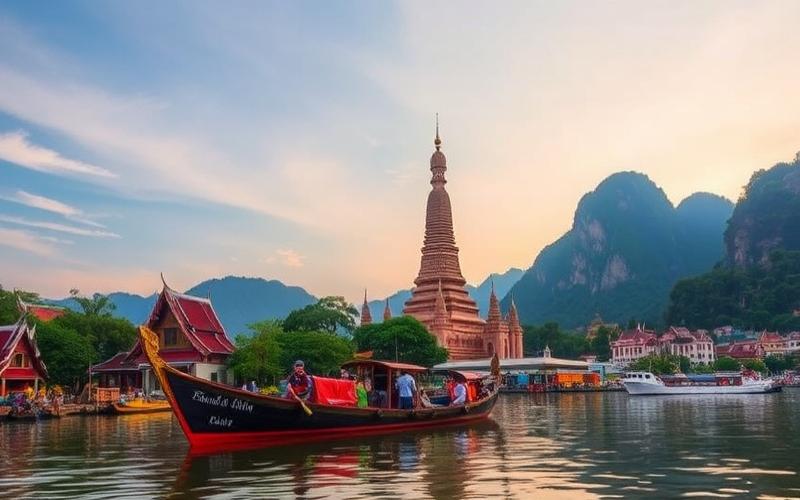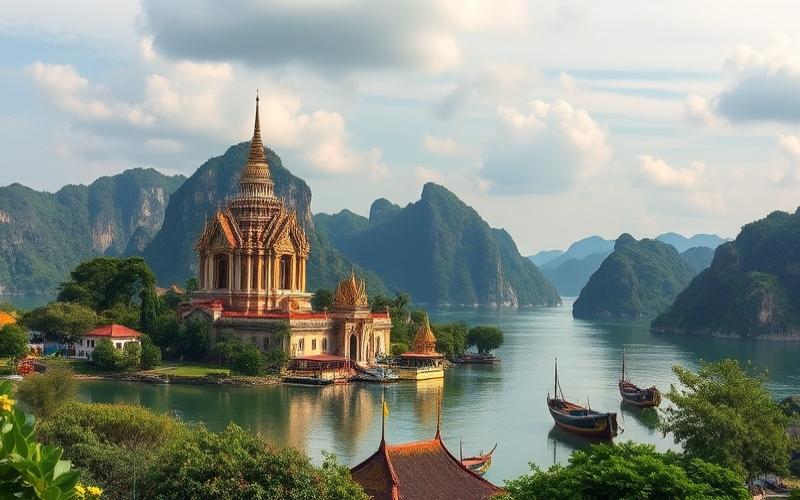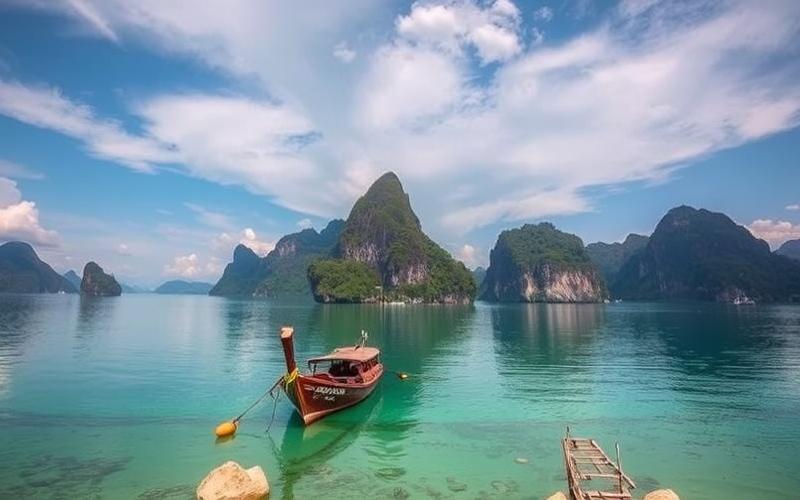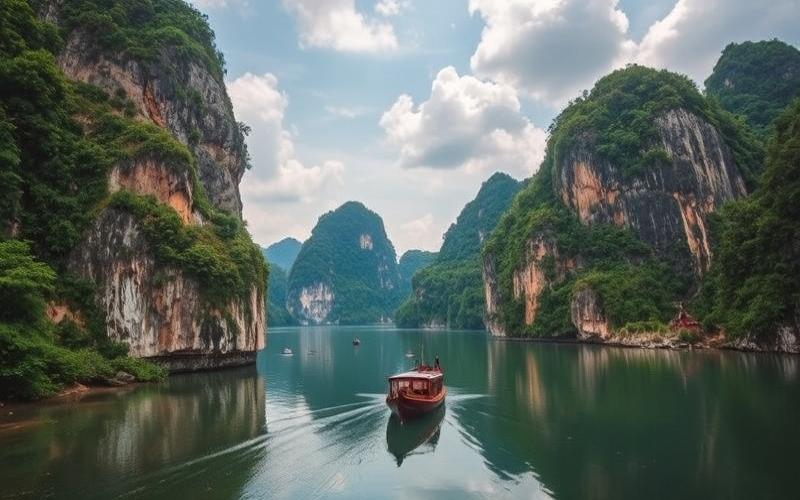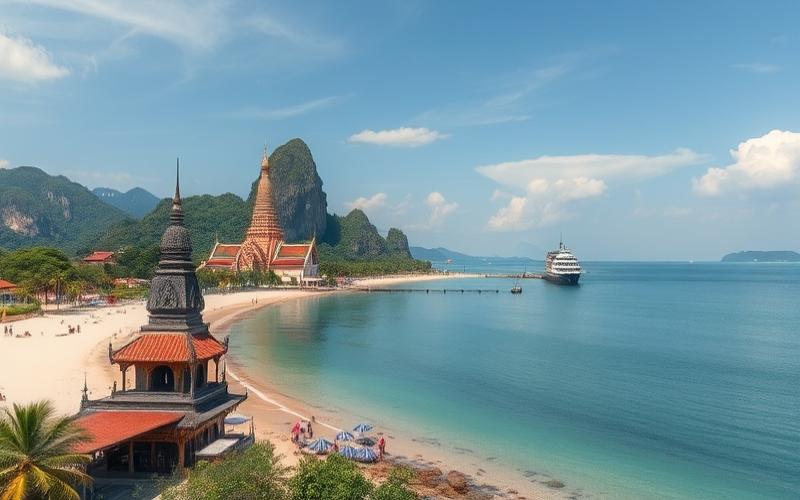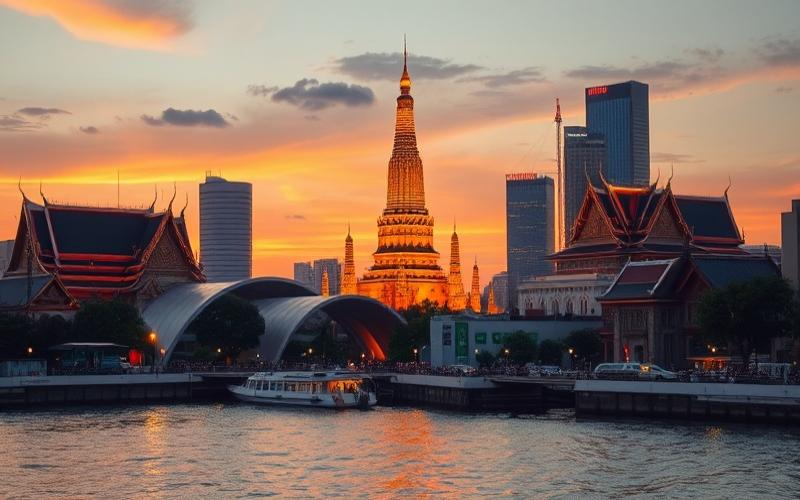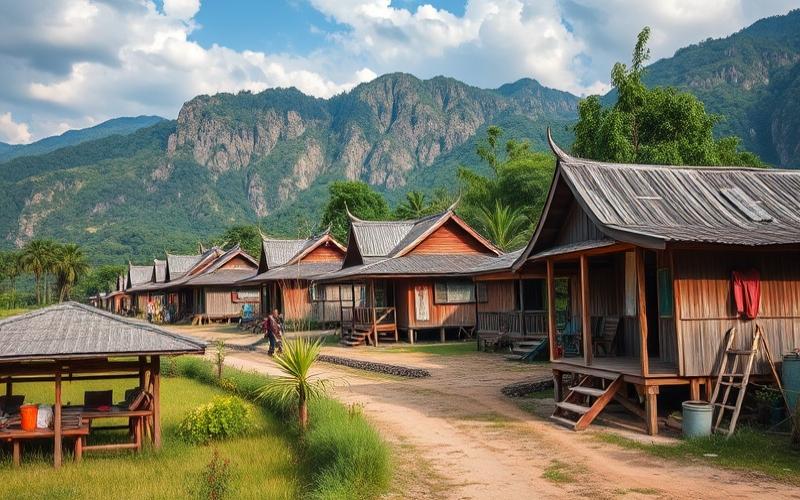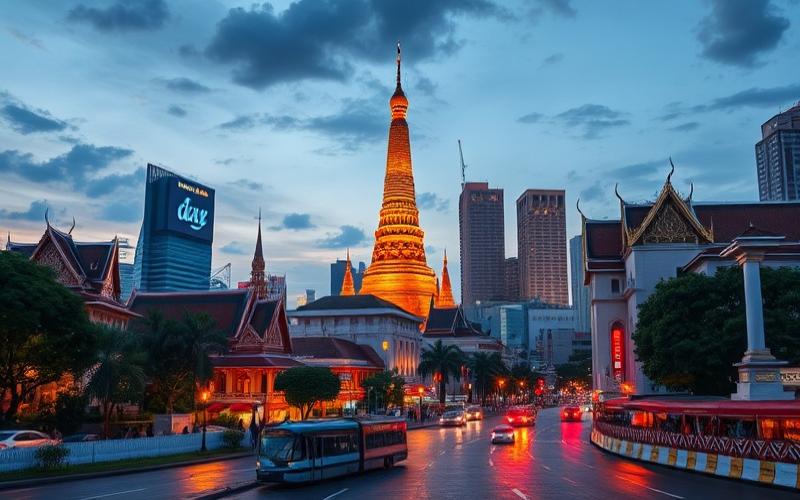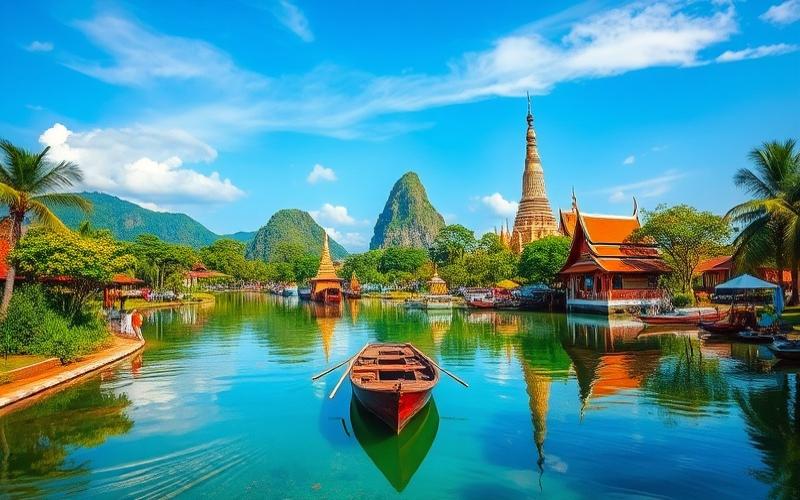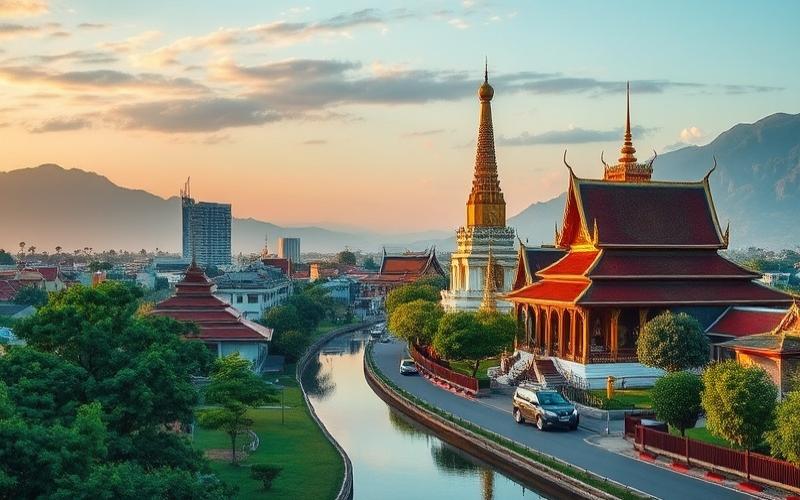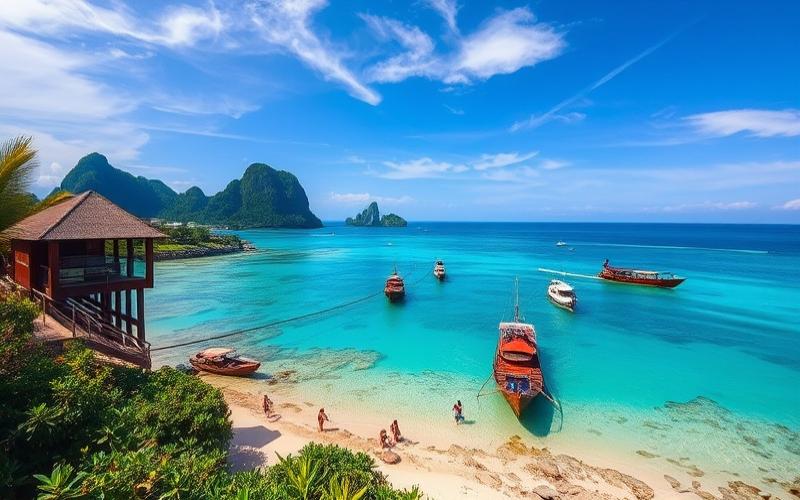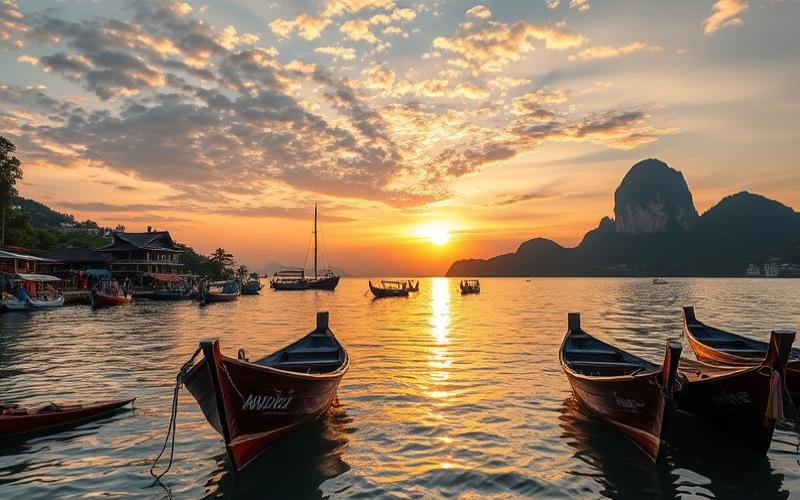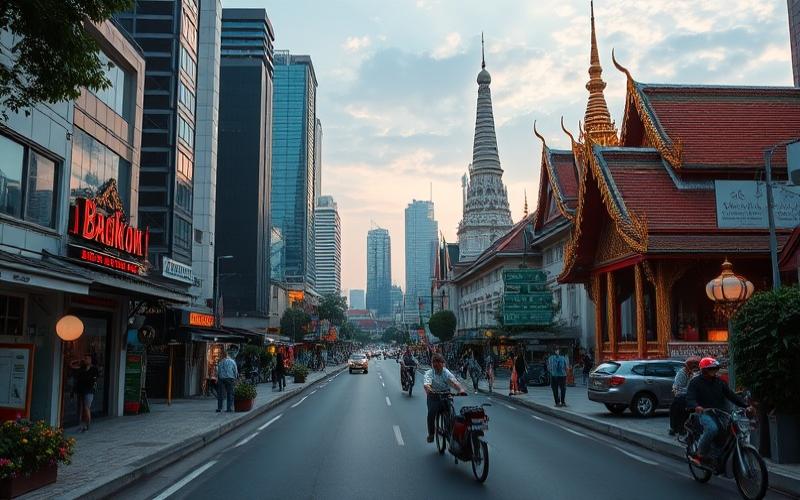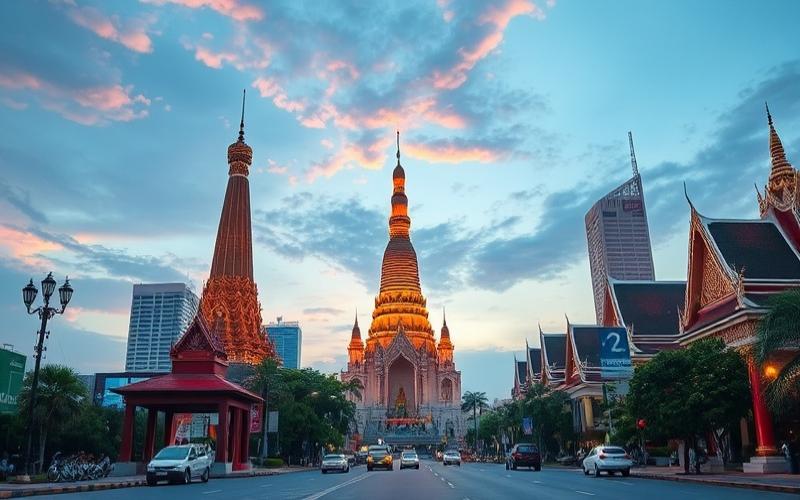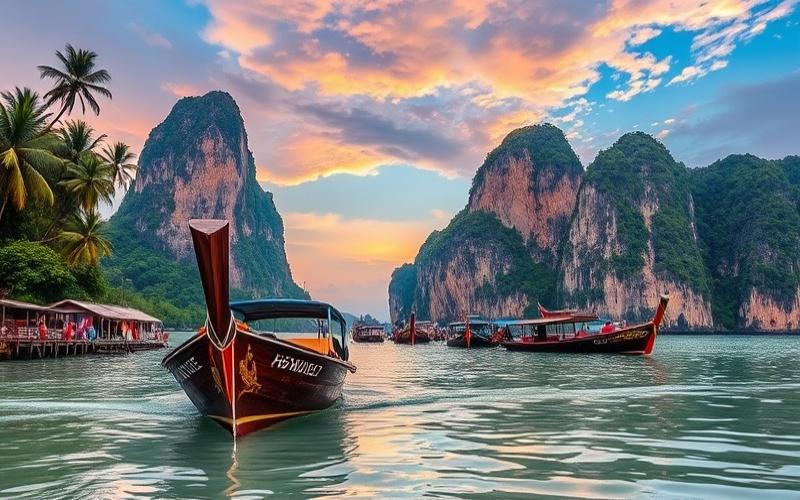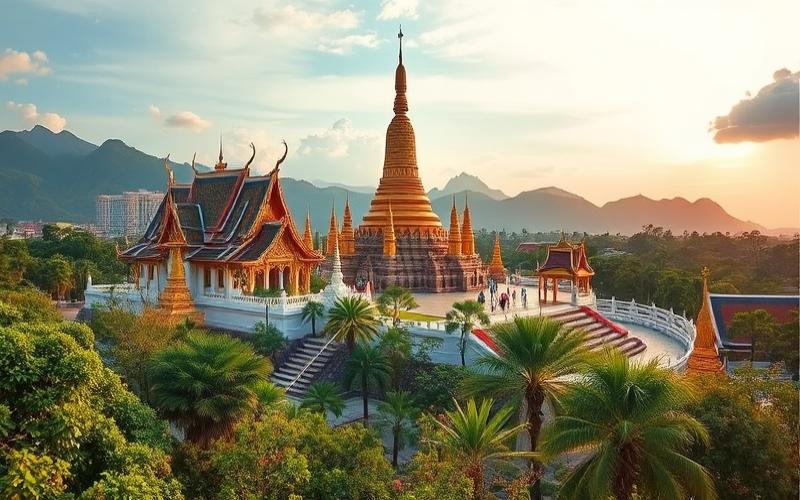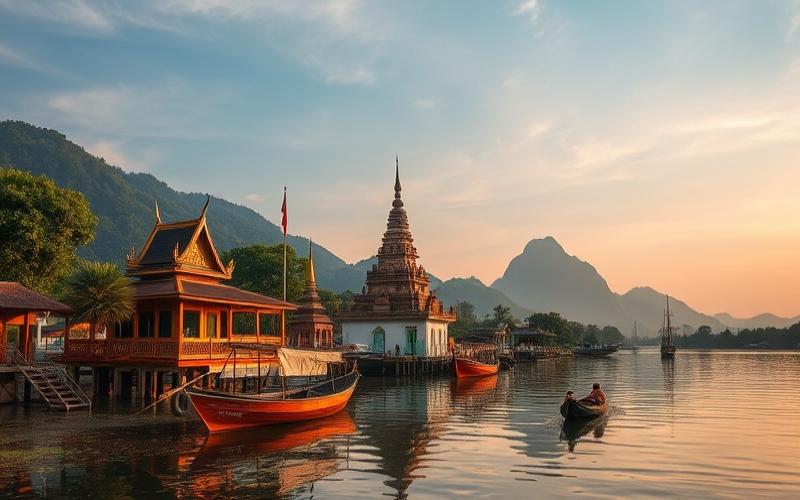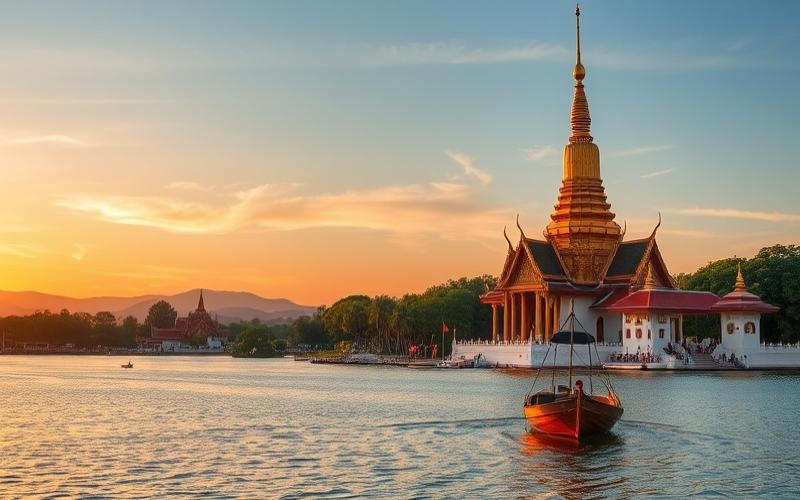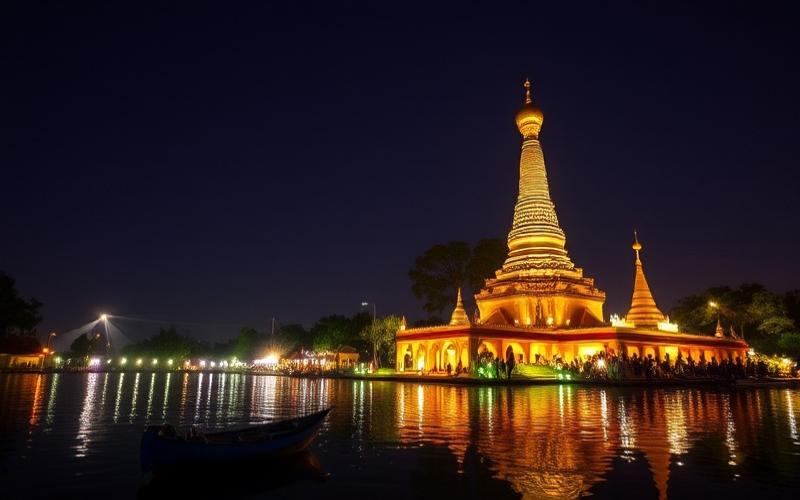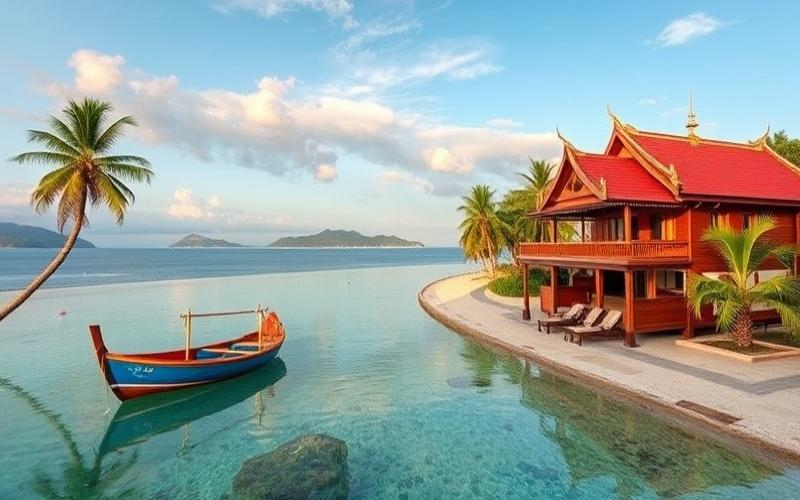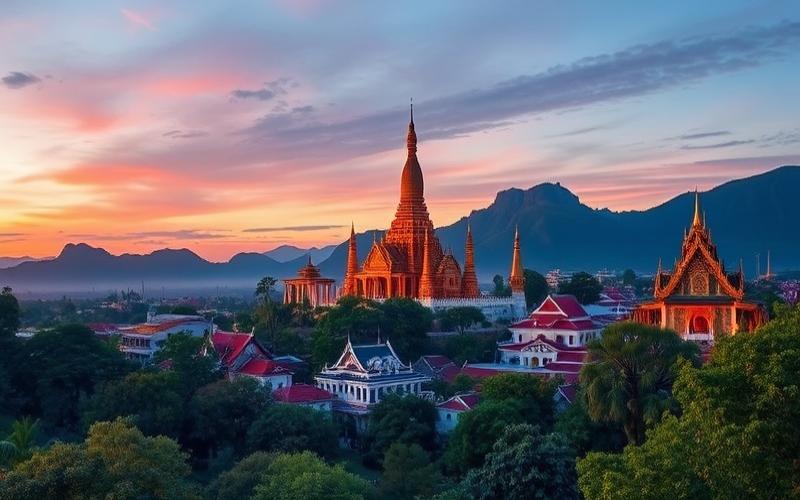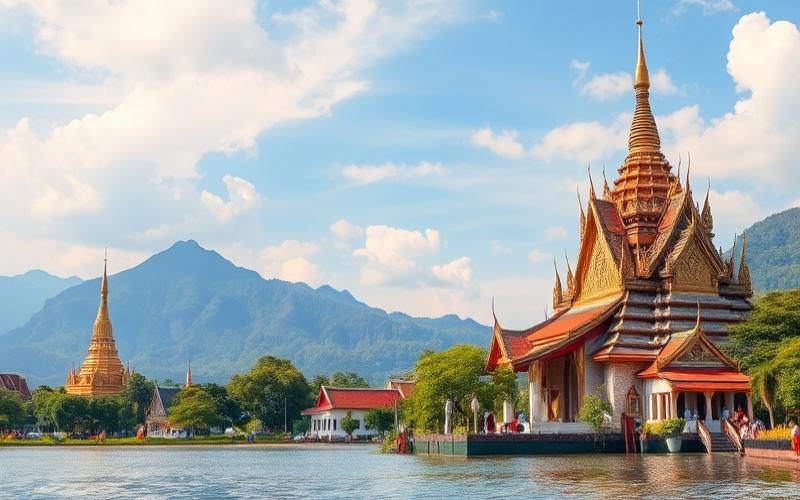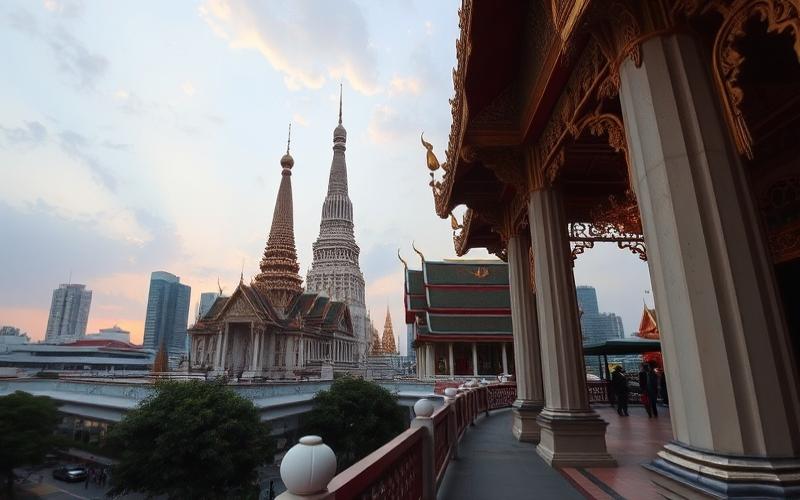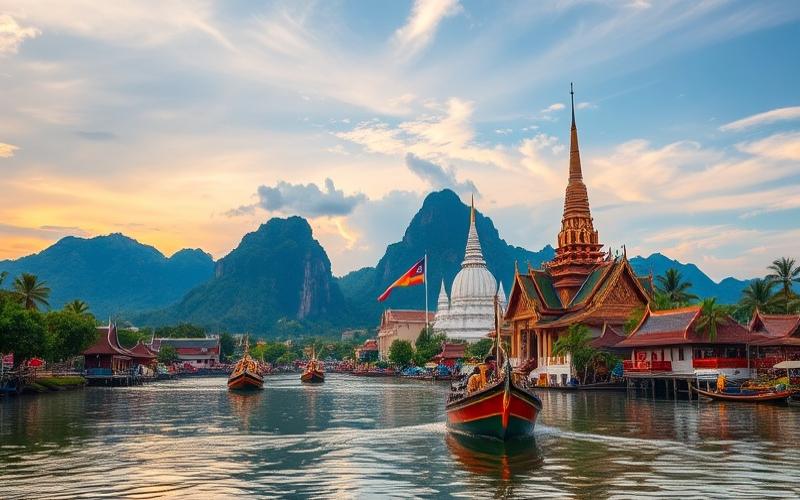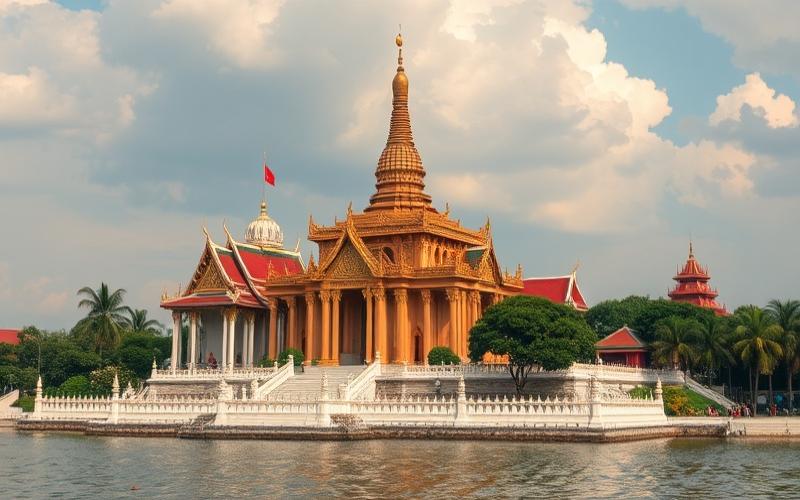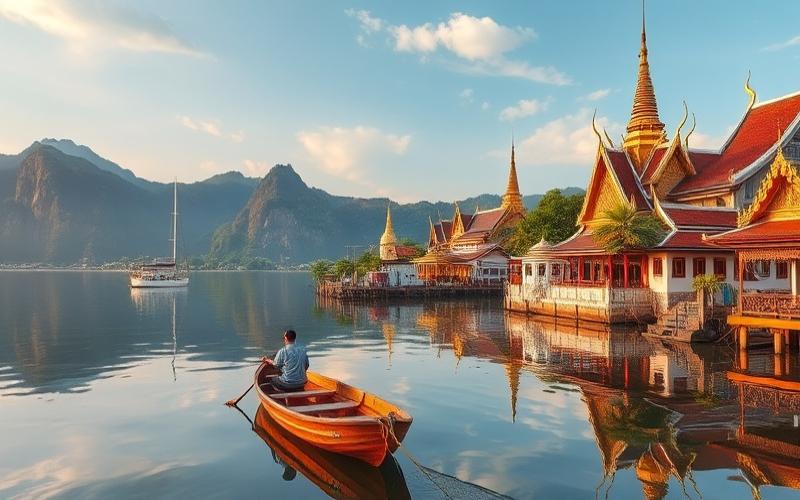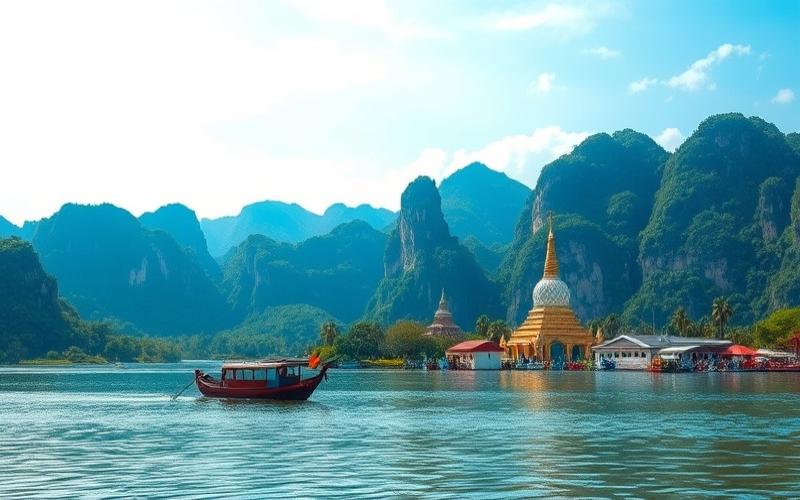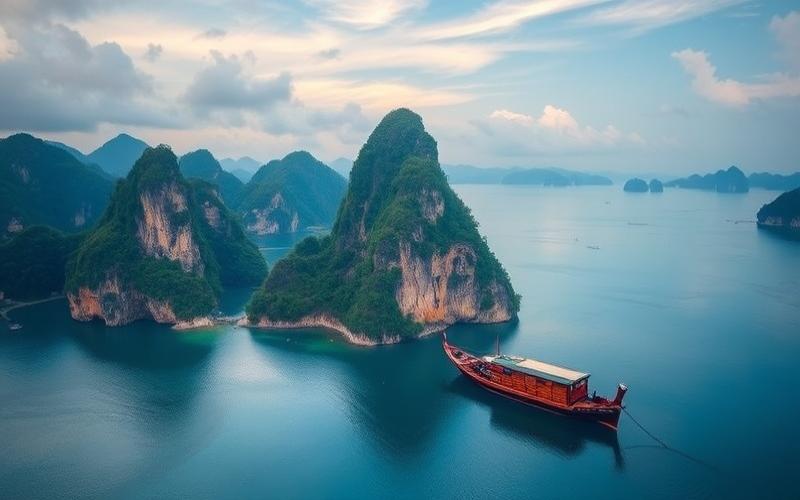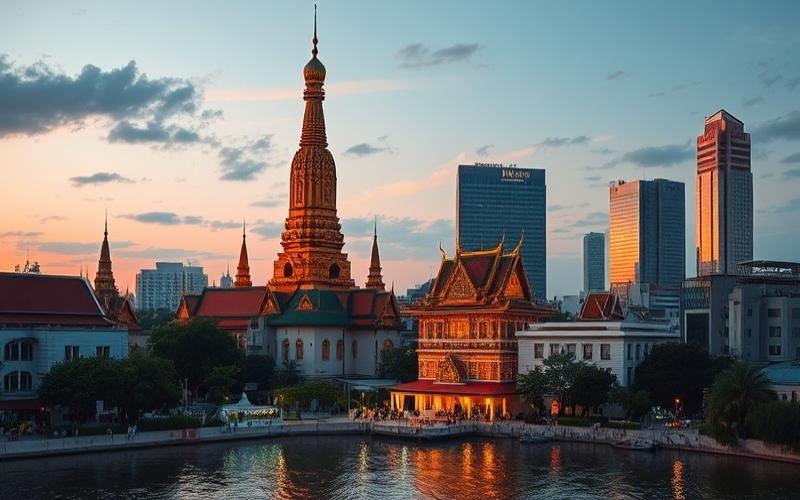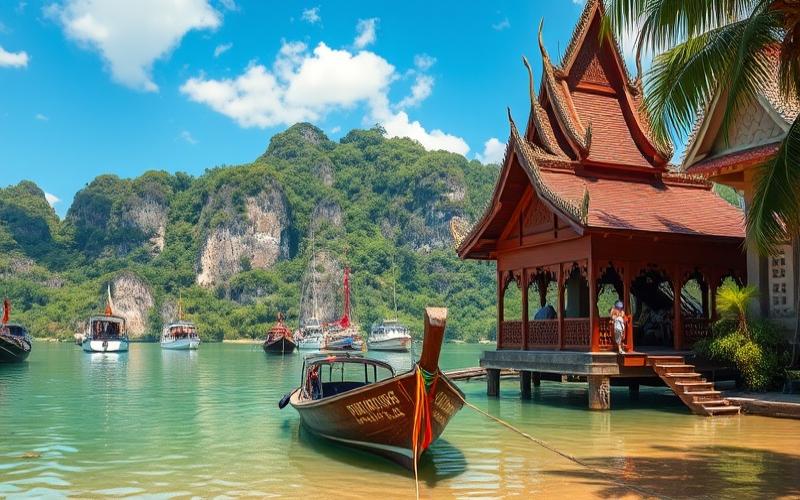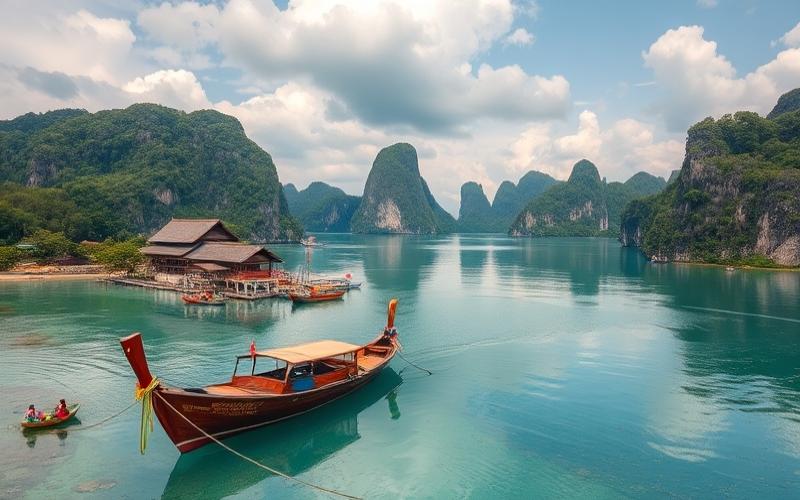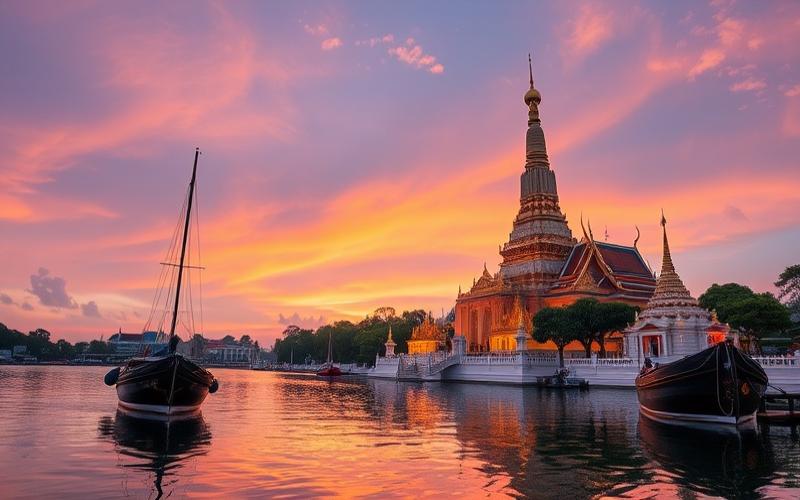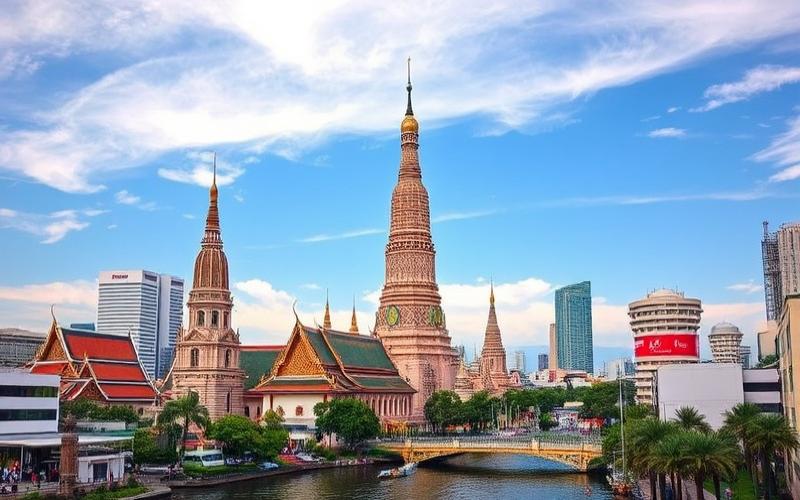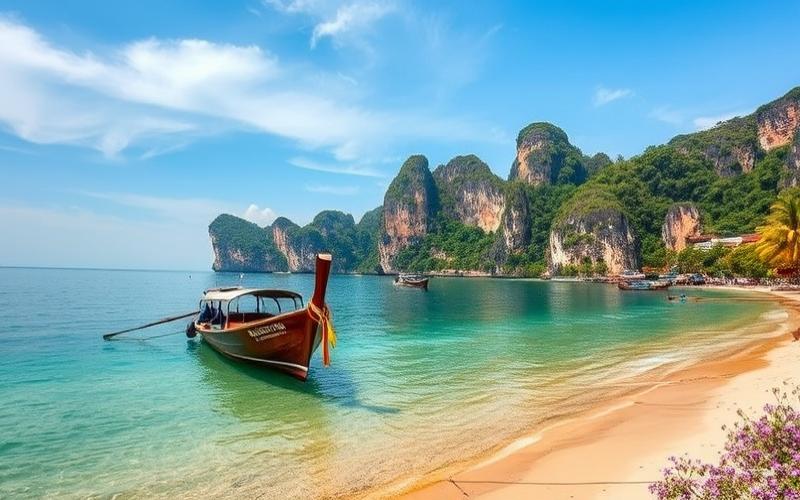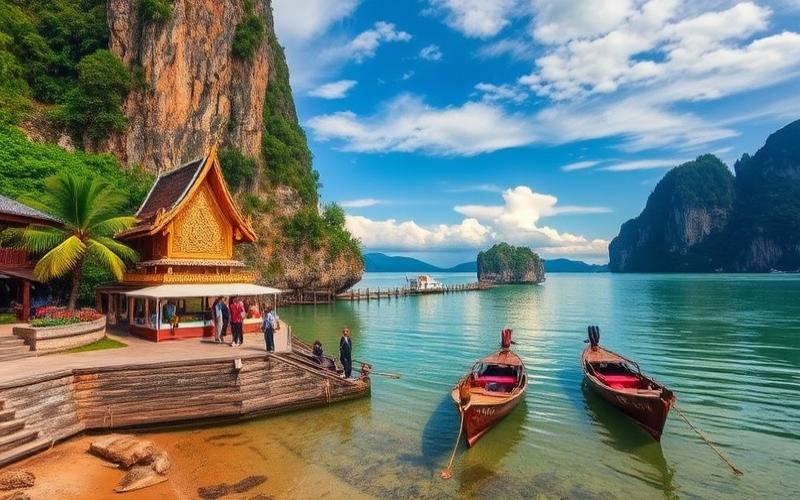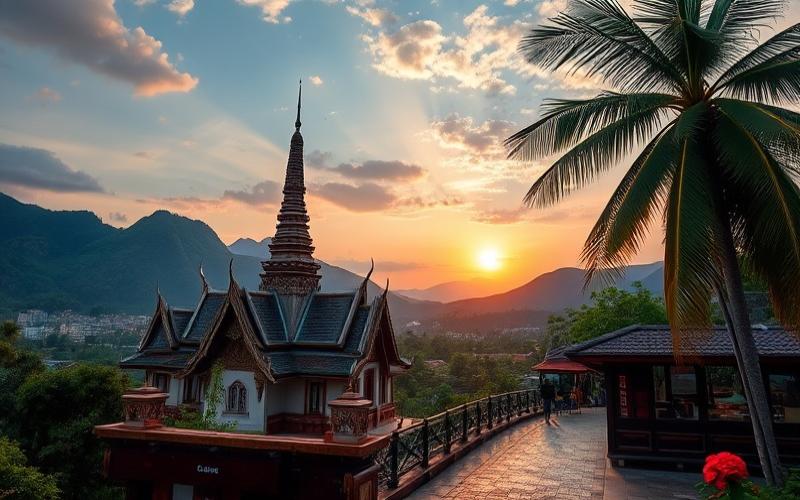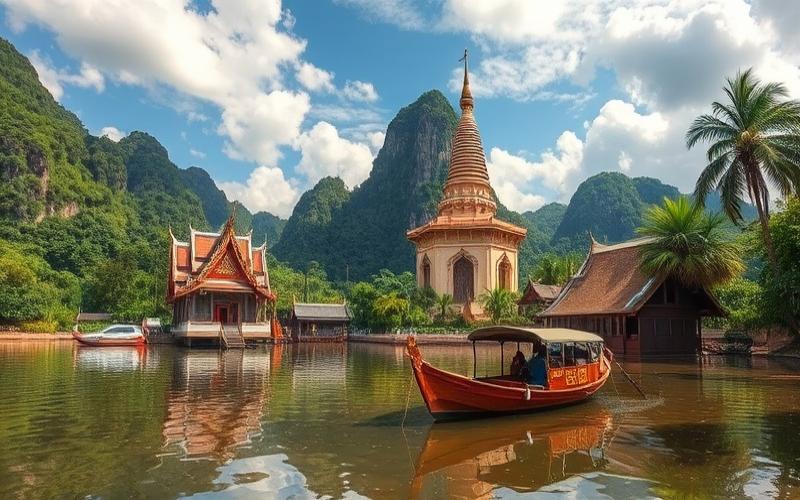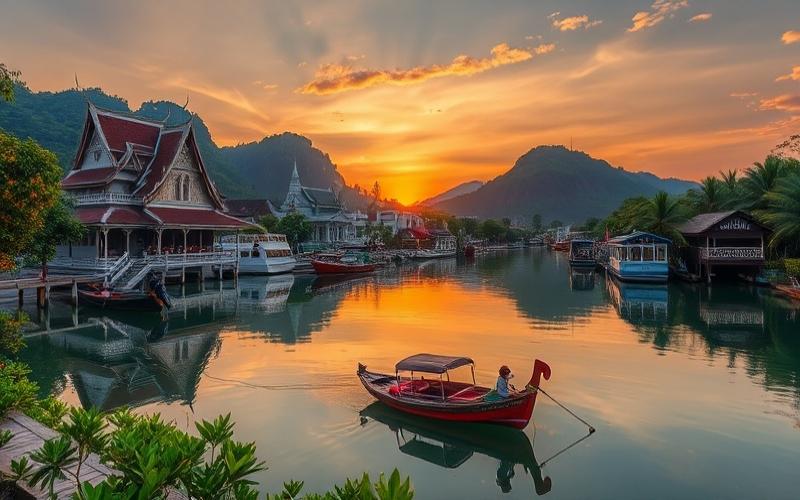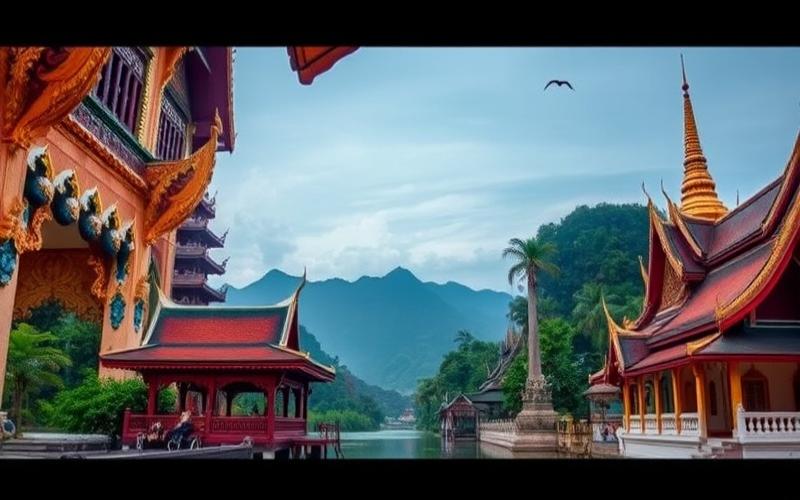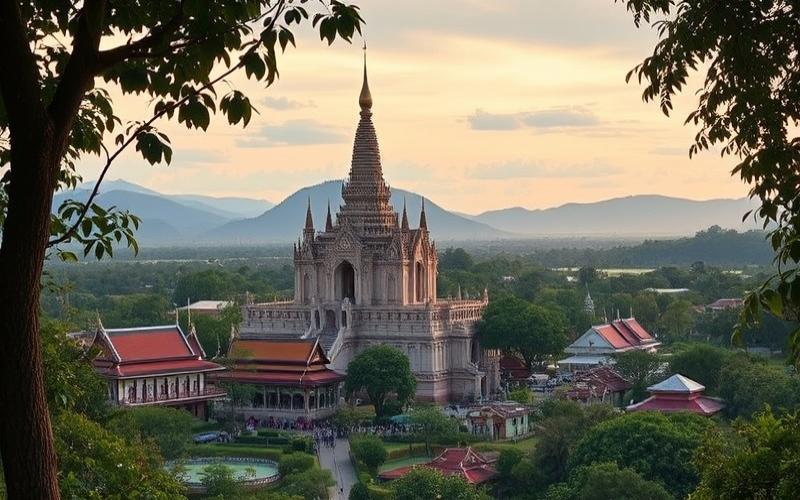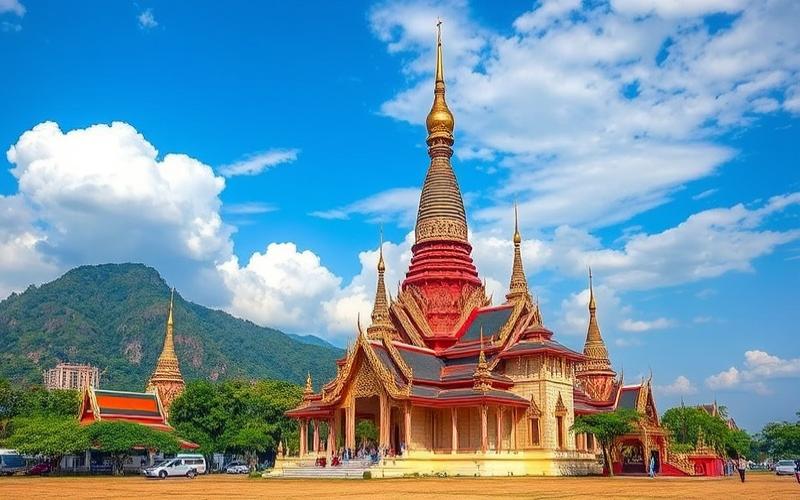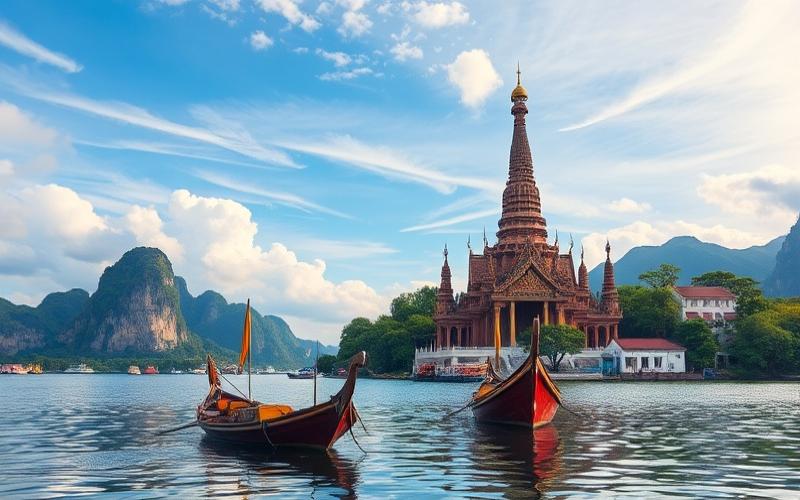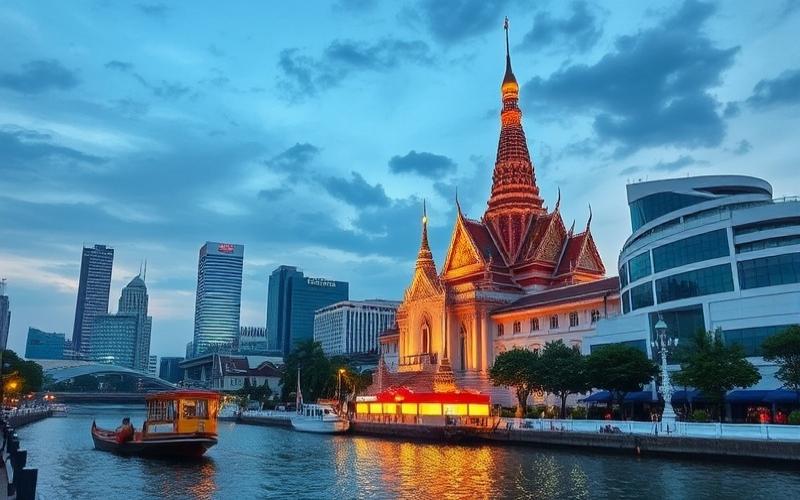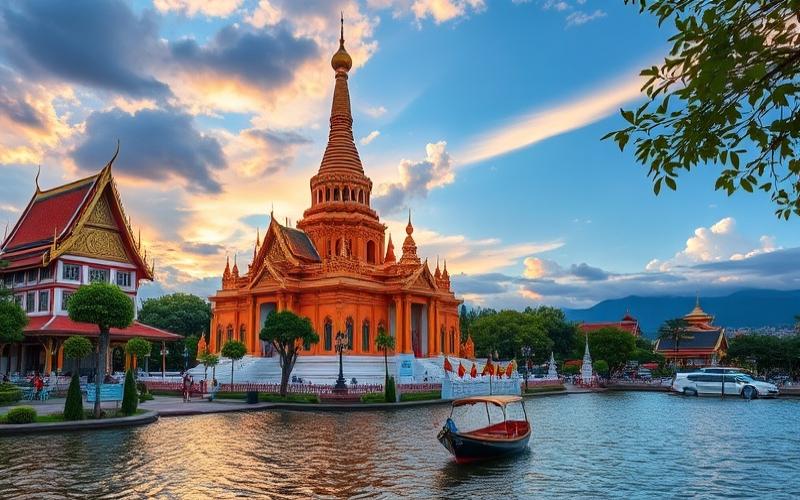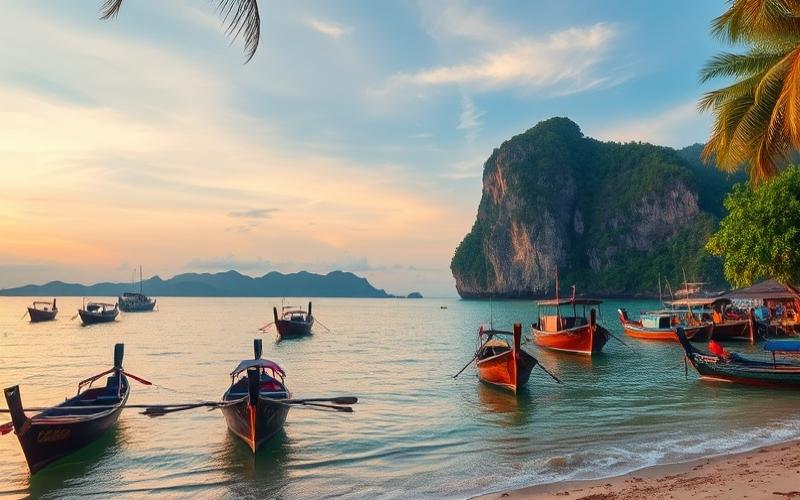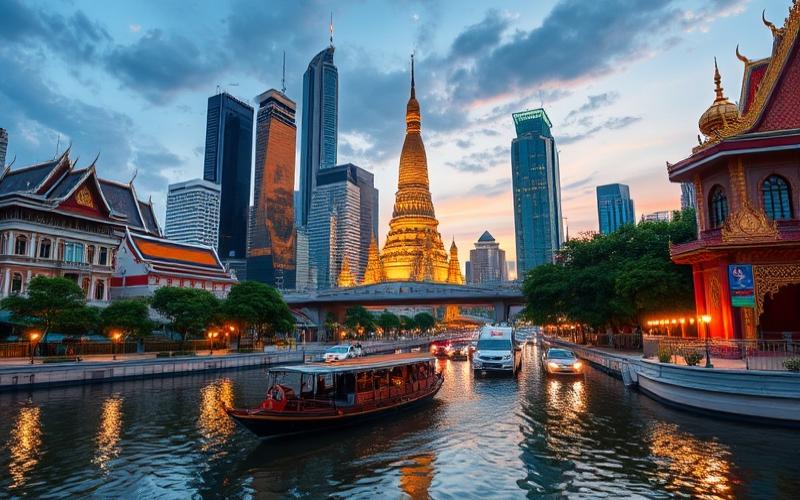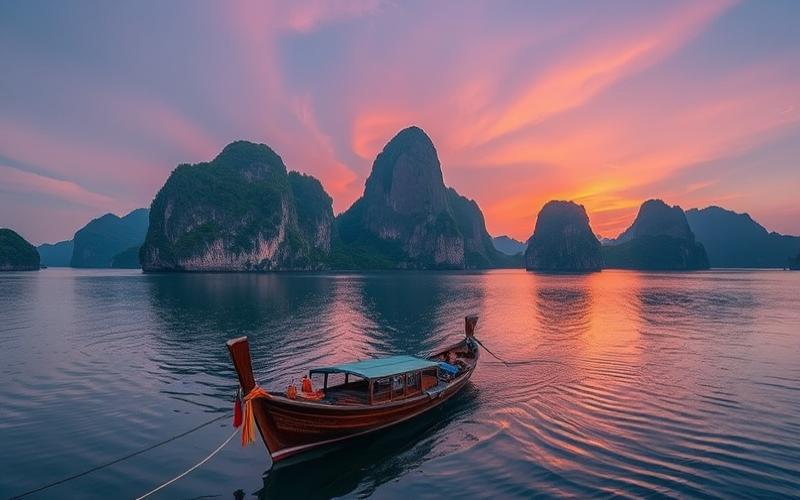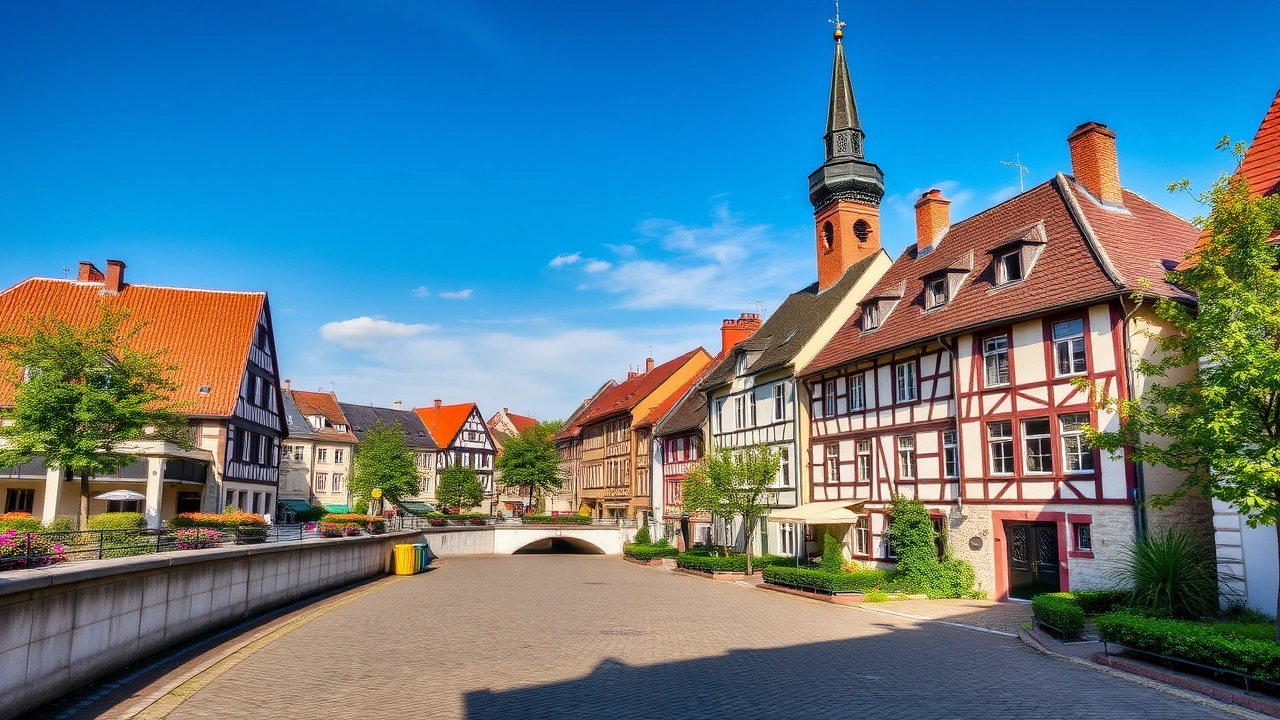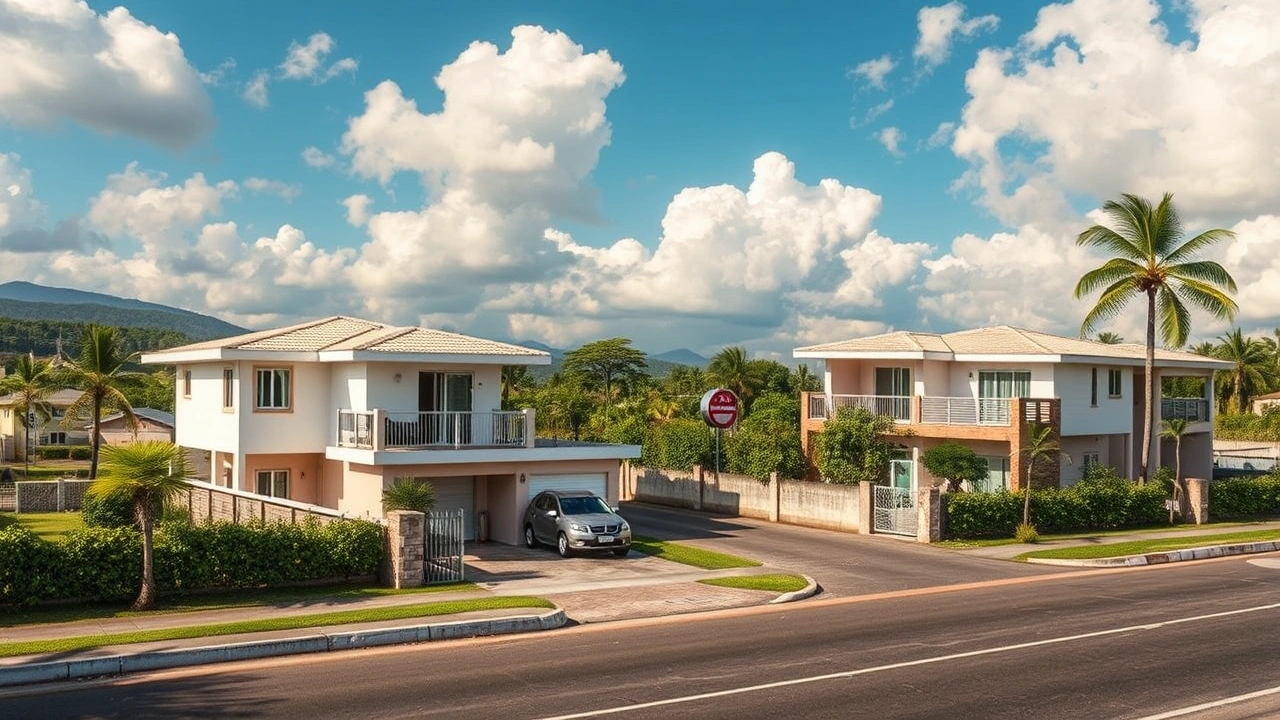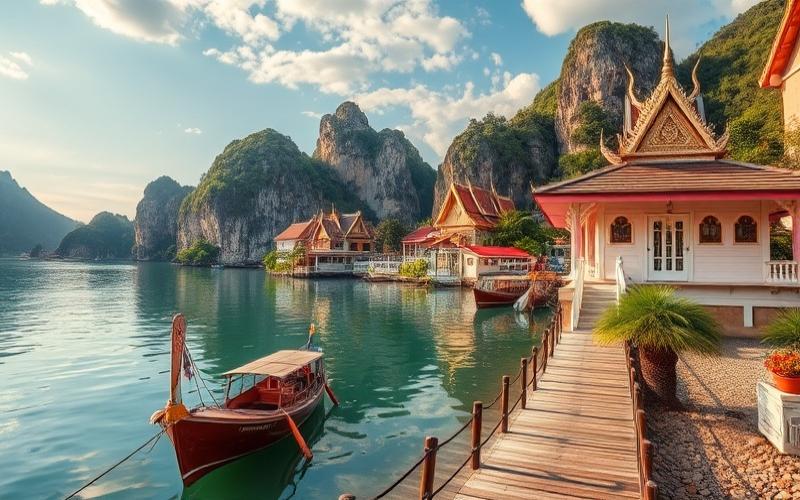
 Published on and written by Cyril Jarnias
Published on and written by Cyril Jarnias
Immersed in an exotic setting blending ancient traditions with modern dynamism, many French citizens have chosen to relocate to Thailand, making this Southeast Asian country their new home. Seeking a different lifestyle, these expatriates are often drawn by the human warmth and affordable cost of living the country offers.
Some have even taken the leap into property ownership, transforming their temporary adventure into a long-term life project. Through their testimonies, we discover the motivations, challenges, and wonders that punctuate the lives of these French citizens building their daily existence under the Thai sky.
Authentic Stories: Life of French Expatriates in Thailand
Marie, a young expatriate in Bangkok, shares:
“I came to Thailand for adventure and discovery. I teach language classes and what I appreciate most here is the kindness of Thai people. Adapting to the climate has been challenging; the heat and humidity can be hard to bear sometimes. I miss my family, but I regularly receive French products from my mother to maintain a connection with my home country. Traveling within the country is truly enriching: the Northeast regions are beautiful and less known. To stay safe, you just need to remain vigilant without provoking trouble; I take the bus alone without issues, but a friend had her phone stolen because she was showing it off too much.”
Patrick, a trader who settled after personal hardship:
After losing my wife in Spain, I chose Thailand to rebuild my life away from European turmoil. Administrative procedures can be tricky if you’re not well-informed—many expatriates return disappointed or ruined because they didn’t anticipate the legal difficulties related to visas or property purchases.
| Motivations | Challenges Faced | Cultural Adaptation |
| Seeking Adventure | Humid Heat | Kindness of Locals |
| Quest for Renewal | Isolation (Language/Family) | Humor and Lack of Judgment |
| Professional Opportunities | Cumbersome Administrative Procedures | Smiling Politeness |
- Access to medical care is quick and efficient compared to France.
- The concept of “normal” is different: everyone lives by their own rules without social pressure or judgment.
- Simple pleasures like shopping in shorts or enjoying local markets are part of daily life.
Property Acquisition
To purchase property:
- Foreigners cannot directly buy land; they often purchase pre-construction condos or through a Thai company.
- Need to meticulously verify every legal document (Chanote land title, notarized contracts).
- Funding is typically personal since local banks rarely lend to foreigners.
- Having a Thai partner greatly facilitates all these procedures.
A French hotelier recounts being able to launch his project thanks to the logistical and administrative support of his Thai partner—without her, he could never have managed all the local legal aspects.
Daily Small Pleasures
- Discovering new exotic fruits every day
- Practicing water sports year-round
- Enjoying the ever-present smiles in the streets
“Here, everything can be quirky or eccentric… Nobody judges!”
Various Anecdotes
One expatriate explains that speaking English remains essential to avoid total isolation—those who don’t master the language often end up returning quickly.
Another shares how she gradually adapted to local culinary specialties… except for some overly spicy dishes she prefers to avoid!
Daily life oscillates between complex administrative challenges (annual visas, multiple documents), unexpected cultural wonders, and intense moments where the feeling of being at home eventually takes root in this new exotic setting.
Good to Know:
French expatriates in Thailand share captivating life stories, illustrating their motivations for settling in this country, often attracted by the warm climate and lower cost of living. Some were drawn by professional opportunities, while others sought a peaceful living environment for their retirement. The path to property ownership can be fraught with obstacles, requiring mastery of local laws and legal support. Romain, for example, managed to buy a house through specific expatriate bank loans but had to adapt to local customs during renovations. Another challenge lies in cultural differences, like the language barrier, which Catherine overcame by getting involved in the local community, discovering a passion for Thai cuisine. Daily life in Thailand reveals small joys, such as colorful markets and escapes to paradise beaches, offering a life balance that many find hard to leave.
Testimonials from French Property Owners: Real Estate Purchase in Thailand
“We chose Thailand for the sunshine, street safety, kindness of people, and cost of living.”
Motivations for Purchase
- Seeking sunny climate and better quality of life.
- Desire to enjoy a more affordable cost of living than in France.
- Attraction to perceived safety and friendliness of residents.
- Some owners sought a vacation home, others long-term settlement or peaceful retirement.
“Gradually, the idea of buying property to spend more time here and perhaps retire took root.”
Challenges Encountered
- Language Barrier: “Buying in Thailand seems complicated when you don’t speak English, which is our case.”
- Complex Administrative Procedures: Need for assistance to understand local processes.
- Contracts and Guarantees: Several months’ security deposit, difficulty recovering it in case of early departure.
- Local Specificities: Lack of private parking, noise issues handled differently than in France.
“Thanks to our agent’s support, everything was very easy and clear regarding paperwork.”
Positive Aspects of Property Ownership in Thailand
- Easy access to sea, nature, and relaxed lifestyle.
- Welcoming community and mutual support among expatriates.
- Maintenance costs and fees often lower than in France.
- Opportunity to manage or create small tourism or rental businesses.
“We live in a beautiful and pleasant house. Each passing day confirms our choice.”
Perceived Differences Between French and Thai Real Estate Markets
| France | Thailand |
|---|---|
| Lengthy and formalized procedures | Faster process but less standardized |
| Strong buyer protection | Need to be vigilant about contracts |
| High prices in tourist areas | Attractive purchase cost (outside Bangkok) |
| Strong seasonal rental demand | Possibility to manage guesthouse or resort independently |
Overcoming Cultural and Legal Obstacles
- Using French-speaking agents to secure purchase and explain each step.
- Seeking advice from other expatriates and joining local groups.
- Assistance with banking procedures, visa acquisition, and construction monitoring.
“Without his support and professionalism, we probably wouldn’t have taken the leap.”
Impact on Quality of Life and Integration
- Improved well-being: “I feel much more at ease with the local flora and fauna than in France.”
- Integration facilitated by Thai kindness, though adaptation to hot and humid climate is necessary.
- Renewed sense of security and freedom, especially in retirement.
“Each passing day confirms our choice.”
“Thank you Albert, thanks to you we saw our project through to completion.”
Good to Know:
French property owners in Thailand testify that real estate purchases are motivated by the attractive living environment and affordable property costs compared to France. One recounts: “The price of a seaside apartment here barely equals that of a studio in Paris.” Challenges, particularly bureaucratic ones, are often perceived as complex, but specialized agencies help overcome legal and cultural barriers. “Patience is key,” advises one owner regarding administrative procedures. Owning local property allows for better immersion in Thai culture, another explains: “I felt it was a real step toward integration.” Notable differences between French and Thai markets include transaction transparency and the need to navigate different property rights, highlighting the importance of thorough research before purchase.
Living in Thailand: Expatriates’ Views on Daily Life
Testimonials from French Expatriates in Thailand: Their Daily Life and Perceptions
“Thai cuisine suits me perfectly; it’s delicious and very varied. The climate also suits me perfectly,” shares Pierre, a retiree in Bangkok. He explains having quickly integrated into the local community after a period spent mostly with expatriates, whom he finds have a “particular mentality.” Owning an apartment in the heart of the city, he appreciates access to museums and cultural activities. However, he emphasizes that riding a motorbike in Bangkok requires extreme vigilance: “You never know what might happen. You have to be hyper-focused all the time.”
Mathilde shares her feelings about daily life: while cultural adaptation wasn’t difficult thanks to her appreciation for Thai culture (learning the “wai” greeting, local food), it’s mainly the distance from family that sometimes weighs on her.
Advantages Highlighted by Expatriates:
- Affordable cost of living (excluding imported goods like cars or certain subscriptions)
- Pleasant climate
- Appreciated local cuisine
- Easy access to urban leisure (museums, various classes)
- Active French-speaking networks facilitating initial contacts
| Expense Category | Average Monthly Cost |
|---|---|
| Housing | $140 – $280 |
| Water/Electricity | $40 |
| Local Meal | $4.50 – $8 |
| Internet/Mobile Subscription | ~$28 |
“I eventually built a small group of French friends met through social networks or while traveling, but at the cost of long and multiple efforts… During these six months, I went through several phases of deep loneliness…” — testimony illustrating that despite the vibrancy of major Thai cities like Bangkok, feelings of isolation can be marked for some.
Frequently Mentioned Disadvantages:
- Initial difficulty forming deep connections with locals
- Regular administrative procedures (visa renewals for residence/work)
- Urban traffic perceived as dangerous
- Occasional feelings of loneliness away from family circle
Regarding infrastructure, several points stand out:
- Public transportation is considered efficient but may require adaptation time.
- Private hospital system, modern and efficient in major cities.
- International education is accessible but represents significant cost for French families.
Regarding safety, most note a generally positive impression in their daily lives.
To facilitate integration:
- Some strongly recommend learning Thai through apps or specific courses.
Practical lists mentioned by expatriates:
- Download Meetup to organize language exchanges
- Participate in events organized by Alliance Française
Property owners often express a stronger sense of local “anchoring”: they invest more in their neighborhood and develop lasting relationships with Thai neighbors more easily (neighborhood choice greatly influences social immersion and access to cultural or educational services). Their status also provides reassurance against local rental fluctuations.
Finally, all emphasize the available cultural richness: traditional festivals year-round, lively night markets every week, and numerous sports or artistic activities accessible both in urban and rural settings.
Good to Know:
Living in Thailand as a French expatriate offers a daily life rich in discoveries but also some challenges. The cost of living, generally lower than in France, allows for increased comfort, although some services are more expensive, like international education. For example, Christine, an expatriate in Bangkok, emphasizes that heat and humidity require an adaptation period but also mentions the pleasure of enjoying outdoor activities year-round. Healthcare infrastructure is well-developed in major cities, though sometimes costly without insurance. Integration into the local community is facilitated by Thai kindness, even if the language barrier can pose challenges, as Marc, a property owner in Chiang Mai, points out. Moreover, owning property helps with anchoring and immersing in local culture, offering stability that contributes to better community integration. Public transportation is functional in main cities, though other regions require personal vehicles. Expatriates also appreciate numerous cultural activities and enriching exchanges with locals, while considering overall safety in the country as reassuring.
Disclaimer: The information provided on this website is for informational purposes only and does not constitute financial, legal, or professional advice. We encourage you to consult qualified experts before making any investment, real estate, or expatriation decisions. Although we strive to maintain up-to-date and accurate information, we do not guarantee the completeness, accuracy, or timeliness of the proposed content. As investment and expatriation involve risks, we disclaim any liability for potential losses or damages arising from the use of this site. Your use of this site confirms your acceptance of these terms and your understanding of the associated risks.

